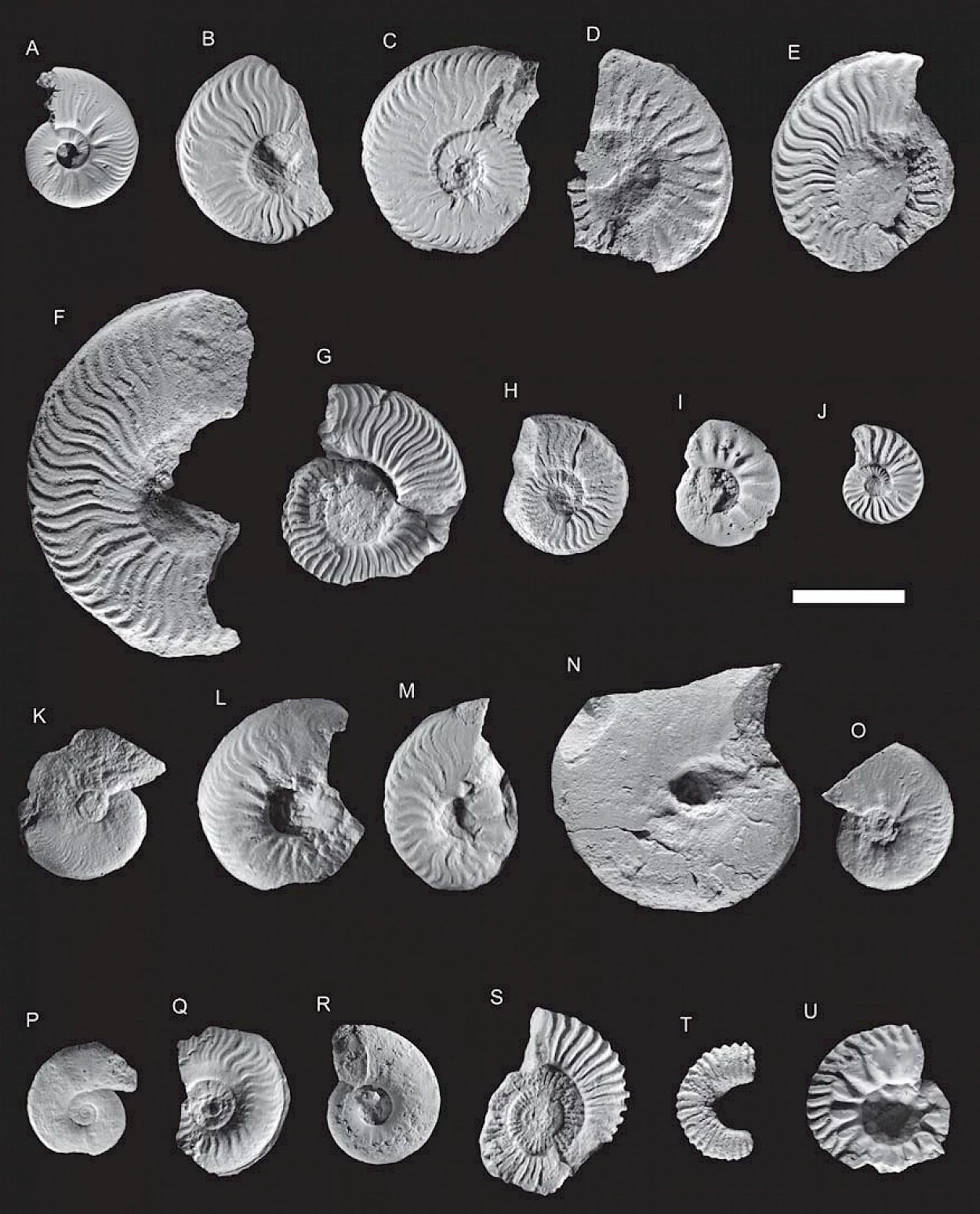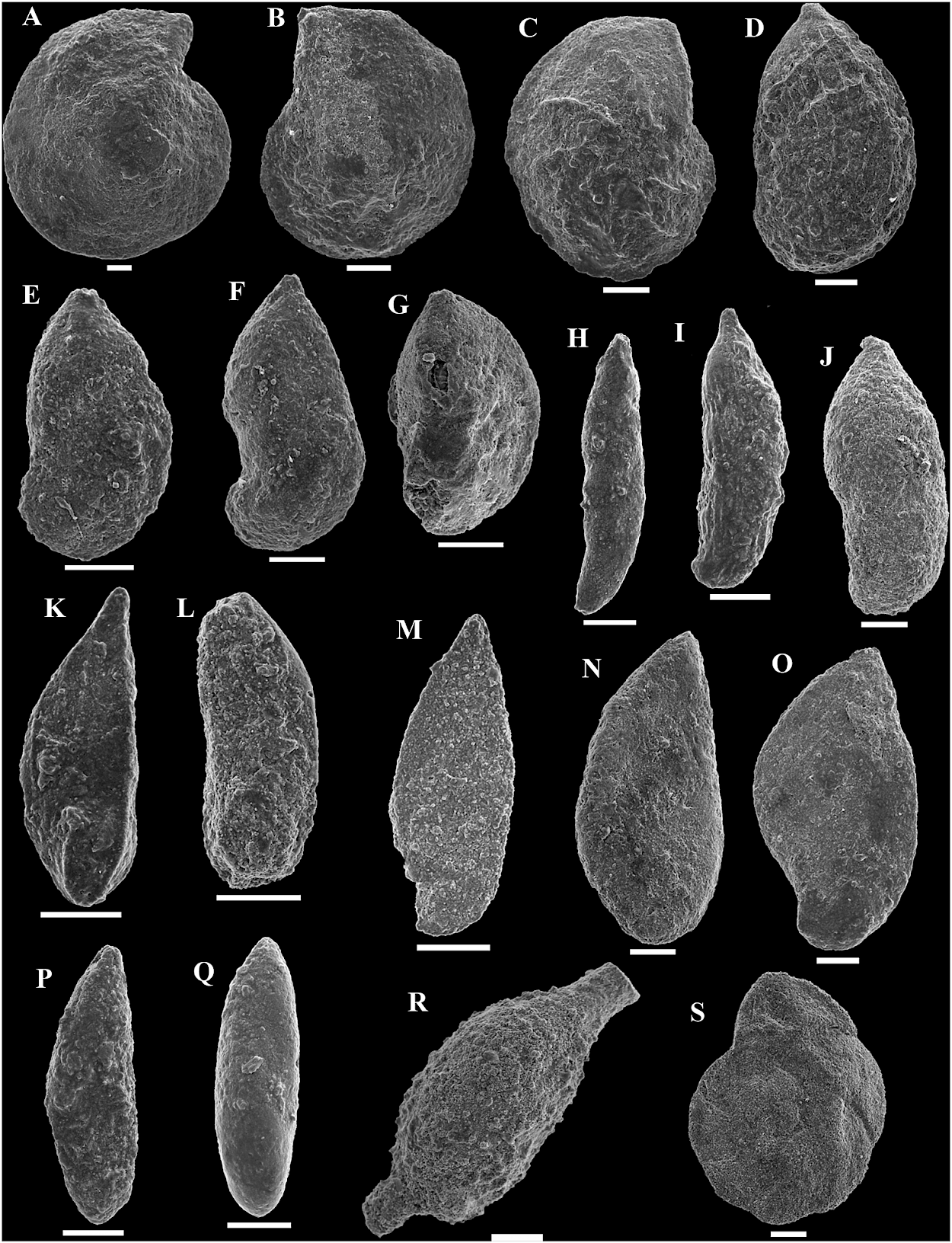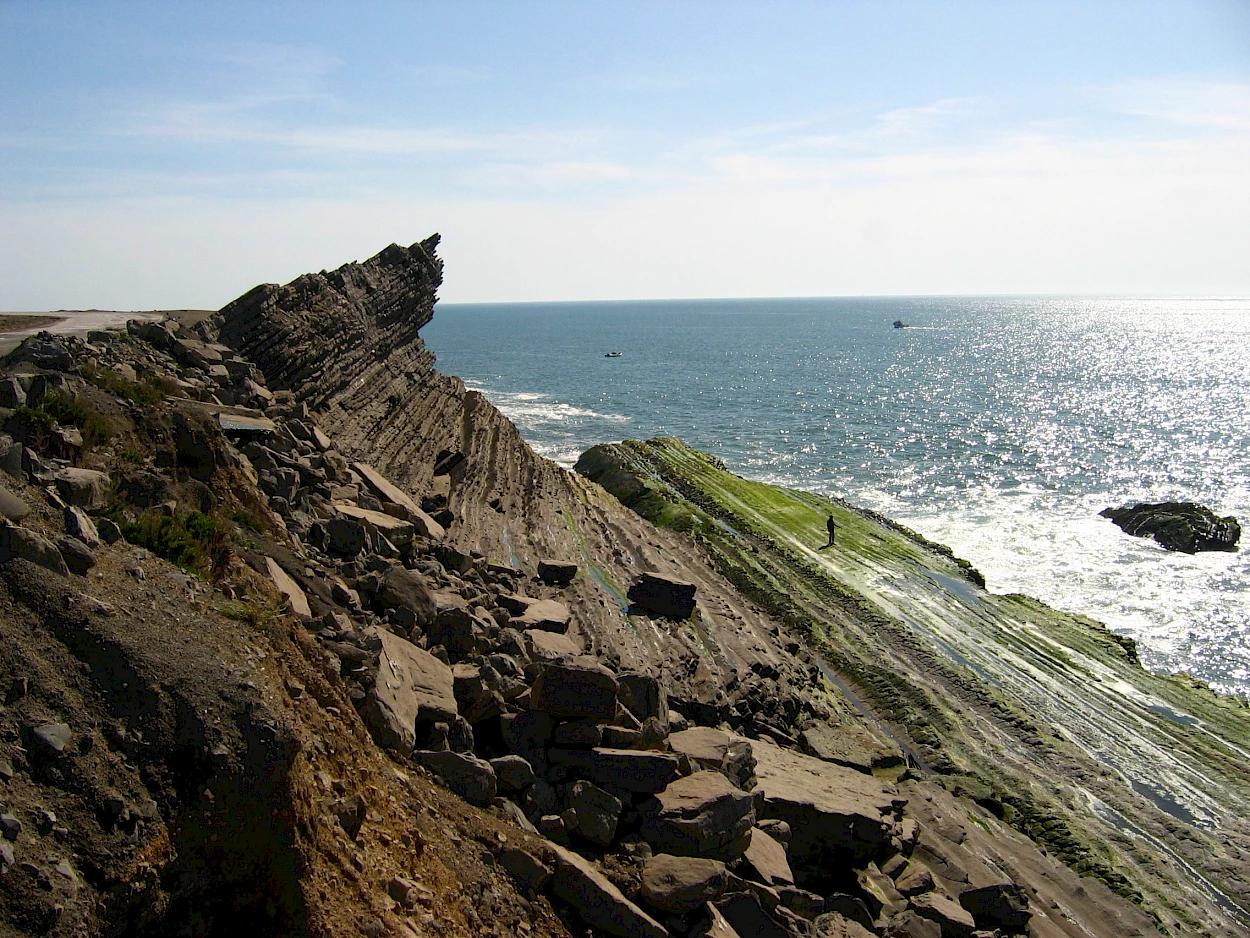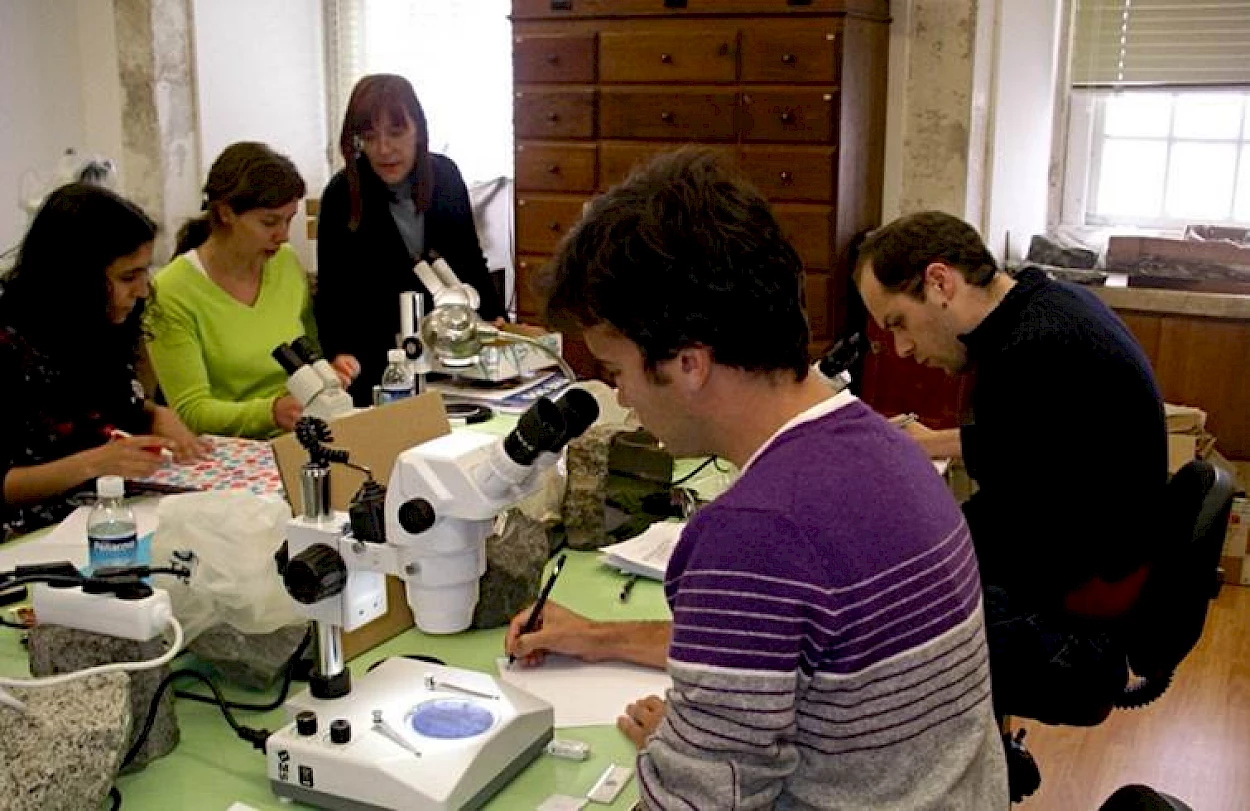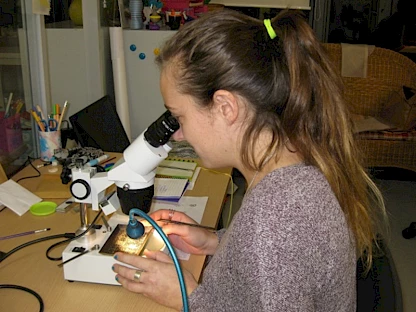The Laboratory of Sedimentary Geology and Fossil Record results from the reconversion of the Laboratory of Paleontology, formally constituted in 2005 in the Department of Earth Sciences of the Faculty of Science and Technology of the University of Coimbra. It welcomes researchers from several national and foreign institutions, who carry out Research and Development activities, within the scope of the Sedimentary Geology and Fossil Record Group of the Geosciences Centre, with the following purposes:
- To deepen the paleontological and biostratigraphic knowledge of the Lower Paleozoic of Portugal, through the interpretation of the fossil record of Trilobita, Graptolithina and Conodonta, and to develop paleogeographic and paleoenvironmental models for the Paleozoic of the Iberian Peninsula;
- To deepen the knowledge of the stratigraphic limits of the most relevant episodes that characterize the geological history of the Lusitanian Basin during the Mesozoic, with emphasis on high-resolution studies based on the interpretation of recorded associations of macrofossils (Ammonoidea, Brachiopoda) and micro-fossils (Foraminifera, Nanofossils) limestone);
- Deepen the knowledge of the History of the Lusitanian Basin, through the interpretation of the geometry and origin of its sedimentary filling, with a view to its application in the assessment of the potential in hydrocarbons;
- Develop academic research activity in the field of Geoconservation and Education for Sustainable Development.
- Mais sobre este texto de partidaÉ necessário o texto de partida para obter informações de tradução adicionais
Activities
The Laboratory of Sedimentary Geology and Fossil Record aggregates human resources and laboratory infrastructures to support the activities of the Center for Geosciences of the University of Coimbra, capable of responding to the needs of industry and the environmental concerns of society, namely in terms of training new frames. It has a critical mass in the field of paleontology and biostratigraphy that allows the development of the following types of approaches:
- Paleontological and biostratigraphic studies to support and develop paleogeographic and paleoenvironmental models;
- Establishment of biostratigraphic scales for the Jurassic of the Atlantic basins based on the fossil record of Brachiopoda, Foraminiferida and Limestone Nanoplankton, well calibrated with biozonal scales already established with Ammonoidea;
- Establishment of biostratigraphic scales for the Cenozoic of the Amazon, based on the palynological record;
- Integrated approach of several tools (biostratigraphy, sedimentology, sequential stratigraphy, diagraphies, gravimetry, etc.), with the aim of knowing the main controls that conditioned the accumulation of sedimentary volumes;
- Development of integrated stratigraphic models (elements, processes and events of recognized petroleum systems), which support the knowledge of the potential in hydrocarbons of Atlantic basins;
- Geoconservation in the components of inventory, evaluation and classification, with emphasis on territories located in CPLP countries.
The installation of the necessary equipment for the processing and analysis of microfossils benefited from financial support from the Galp-Partex-Petrobras Consortium. Research activities are financially supported by the Foundation for Science and Technology, through the Geosciences Center of the University of Coimbra.
Education and training aspect
Space for the development of teaching/learning activities within the scope of practical work in disciplines of the degrees in Geology and Biology at FCTUC (Stratigraphy, Paleontology, Seminar, Scientific Internship, Educational Internship). Space for the development of research activities within the scope of the Masters in Geosciences at FCTUC (curricular part, elaboration of theses) and within the scope of doctoral projects at the University of Coimbra and at foreign universities.
Inter-institutional cooperation
Welcoming Portuguese and foreign researchers for research activities and advanced training in paleontology, micropaleontology and biostratigraphy.
Equipment
In addition to the cabinets where the reference collections are stored, the laboratory also has the following facilities: reference and published in different magazines and books.
- Mechanical equipment for preparing fossils (macro-fossils);
- Photographic equipment for the graphic reproduction of paleontological material (macro-fossils);
- Laboratory equipment for processing microfossil samples (conodonts, foraminifera, limestone nanoplankton);
- Equipment for microscopic analysis and binocular magnifying glass of microfossils;
- Online and offline bibliographic resources for taxonomic determination of macro-fossils and micro-fossils;
- Computer equipment for data processing;
- Furniture for practical classes and/or seminars with capacity for a maximum of 10 people, with computer equipment for sound and image projection;
- Didactic collections of fossils from different taxonomic groups.
Services provision
Coordination of Training Programs in Petroleum Geology, within the scope of the Master in Geosciences at the University of Coimbra, taught in Portugal and Angola. : Petrobras – Petróleo Brasileiro SA and Hydro – Oil & Gas).
Consultancy in the area of Exploration of Hydrocarbons in the Lusitanian Basin, within the scope of biostratigraphy and analysis of sedimentary basins.
Consultancy in the area of Geoconservation, in articulation with several municipalities (Example: Cantanhede, Arouca).
Taxonomic determinations and high-resolution biostratigraphic information.

